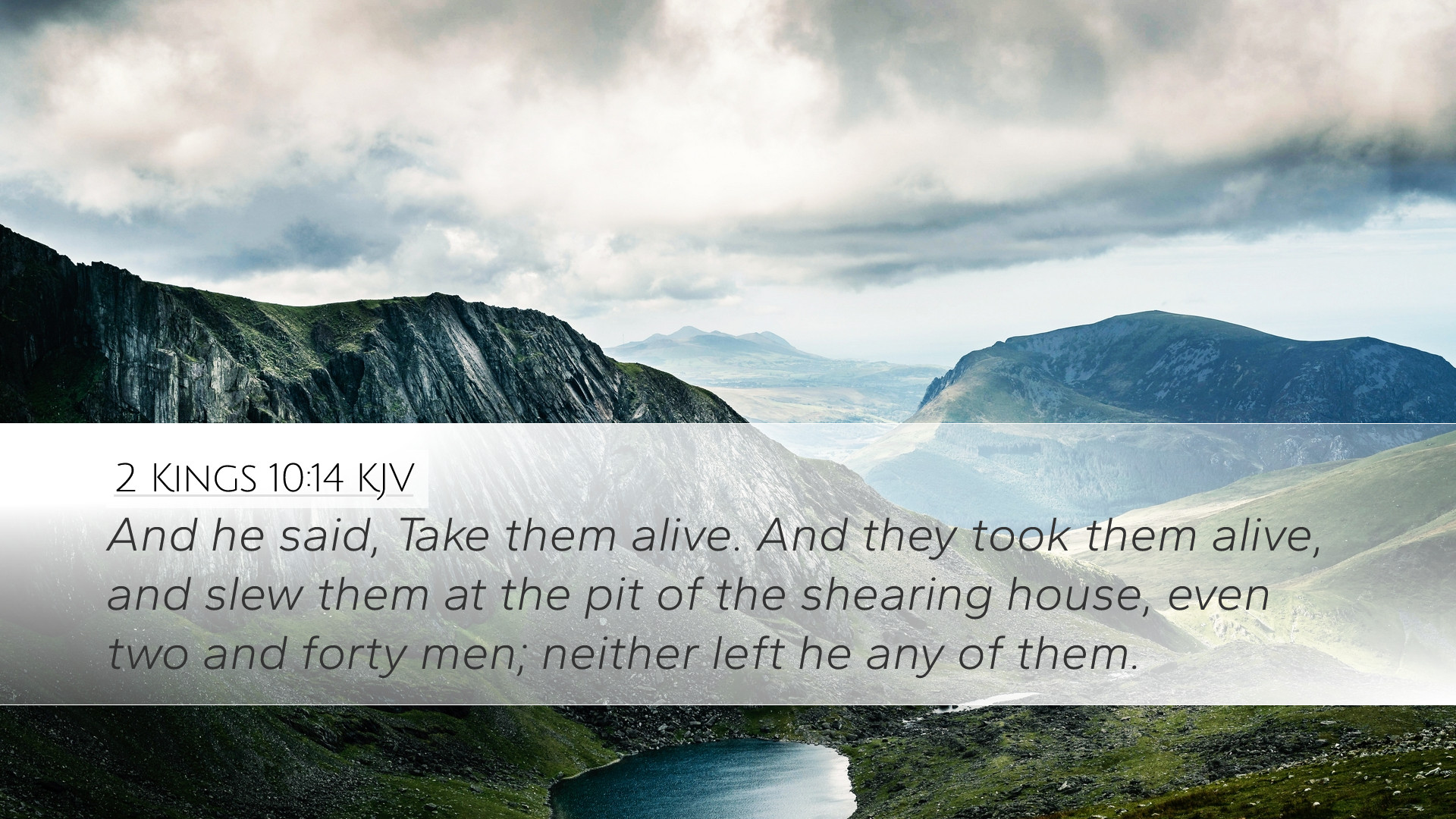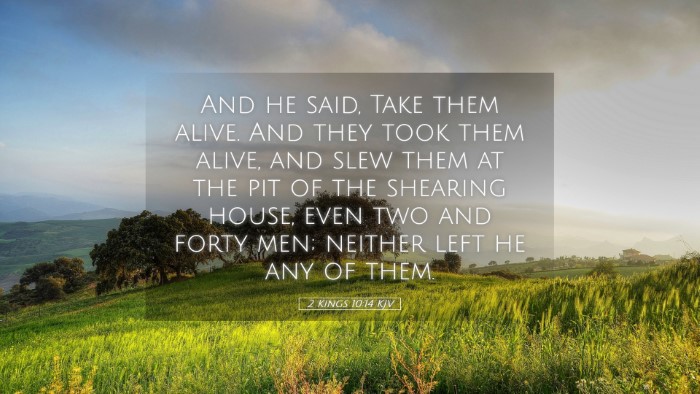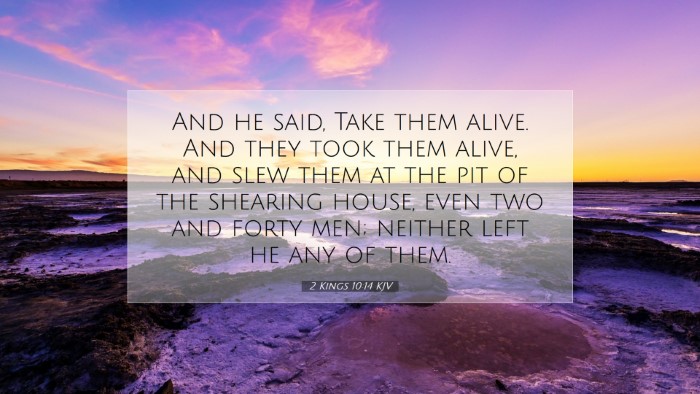Commentary on 2 Kings 10:14
2 Kings 10:14 states: "And he said, 'Take them alive.' And they took them alive and killed them at the pit of Beth Eked, forty-two men; and he left none of them." This text presents a pivotal moment in the narrative of the kings of Israel, shedding light on themes of judgment, identity, and the consequences of idolatry.
Overview
This verse occurs in the context of Jehu's campaign against the house of Ahab and the worshipers of Baal. Jehu has been anointed king with the divine command to eradicate the worship of Baal in Israel (2 Kings 9:6). His actions are driven by zeal for the Lord's honor and obedience to God’s directives. The extermination of these men, loyal to the previous royal line and idolatrous practices, illustrates the severity of divine judgment against sin.
Theological Insights
A blend of themes presents themselves in this verse, reflecting on divine sovereignty, justice, and the serious nature of idolatry in Israel’s history. The execution of forty-two men can compel a deeper examination of the nature of judgment and accountability before God.
Divine Judgment
Matthew Henry reflects on the executions under Jehu’s command as being justified as divine retribution for the sins of Ahab and his descendants. These actions manifest God's judgment on persistent unfaithfulness to Him. As the divine set apart Jehu to bring about this judgment, such acts remind the faithful of the seriousness of covenant fidelity.
Righteous Zeal in Action
Albert Barnes elaborates on the notion of righteous zeal present in Jehu’s actions. This zeal isn’t driven by personal vendetta but by a divinely sanctioned mission. Jehu’s directive to take living captives comes from a desire to ensure no remnants of Ahab’s house could return and reinstate idolatrous practices. This emphasizes the importance of decisiveness in spiritual warfare against evil.
Historical Context
In interpreting this verse, attention should also be drawn to the historical backdrop of Israel during Jehu’s reign. The narrative provides insight into a time of transition where prophetic authority and royal politics intersect. It is crucial to remember that Israel's commitment to Yahweh was regularly compromised by external influences and internal corruption.
Idolatry and Its Consequences
Adam Clarke notes the significant impact of idolatrous practices upon the nation, demonstrating that such fidelity to the worship of Baal would have meant severe spiritual consequences. Jehu’s annihilation of the priests and supporters of Baal signifies a turning point that challenged the people to reconsider their allegiance. The verse presents a stark reminder that the worship of false gods is not without consequential repercussions.
Moral and Ethical Reflections
The ethical implications of Jehu's actions can evoke serious discourse among theologians and pastors. While it might seem harsh, there is a connotation of necessary purging from evil that permeates the text. The true inquiry arises in the balance between divine judgment and mercy, prompting modern believers to reflect on how to engage with sin within their communities.
Application for Today
The idea of 'taking action' against sinful influence within the church remains relevant today. How does the community introspect and confront ideologies that violate their covenant with God? The narrative prompts ongoing discussions on how to navigate righteousness amid a culture that diverges from biblical principles.
Conclusion
2 Kings 10:14 reveals that God's judgment is executed against persistent unfaithfulness. Jehu’s actions serve as a cautionary tale regarding the destructive power of idolatry and the necessity for a decisive response to sin within a community. The commentators of the public domain remind us that amidst God's judgment lies the call for believers to reflect on their fidelity to Him. This verse compels us to act justly while understanding the essence of divine justice, seeking always to align ourselves with God's will.


